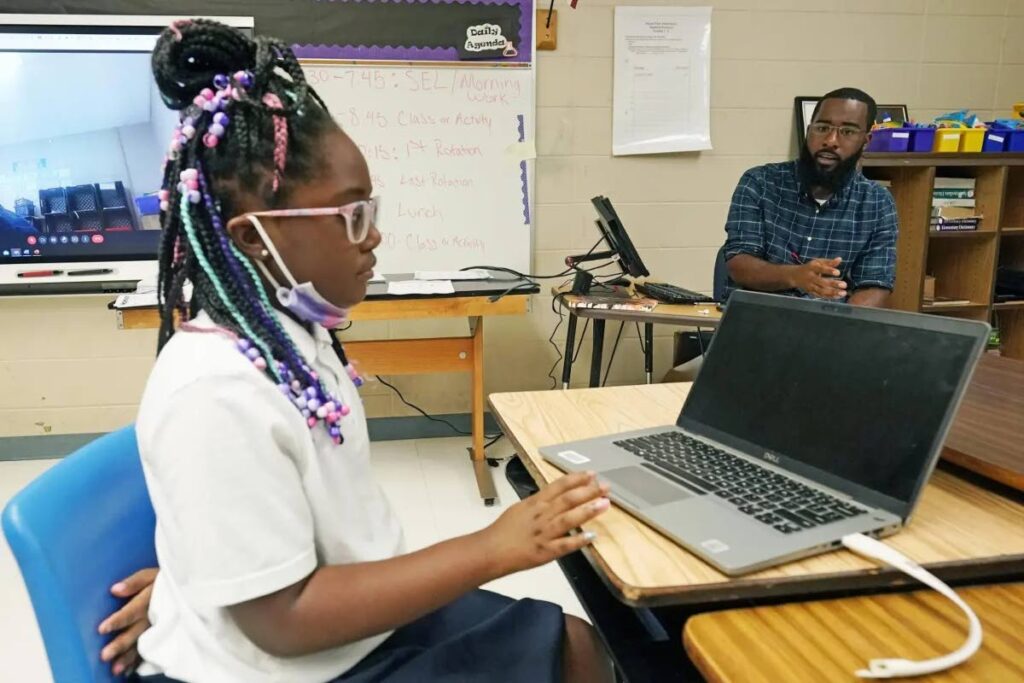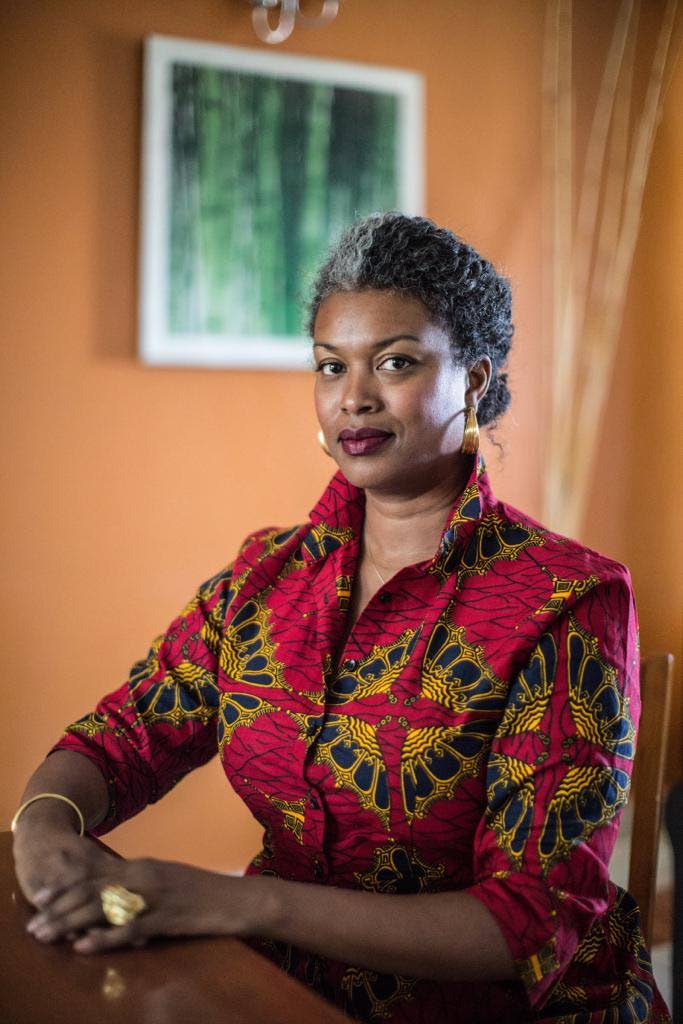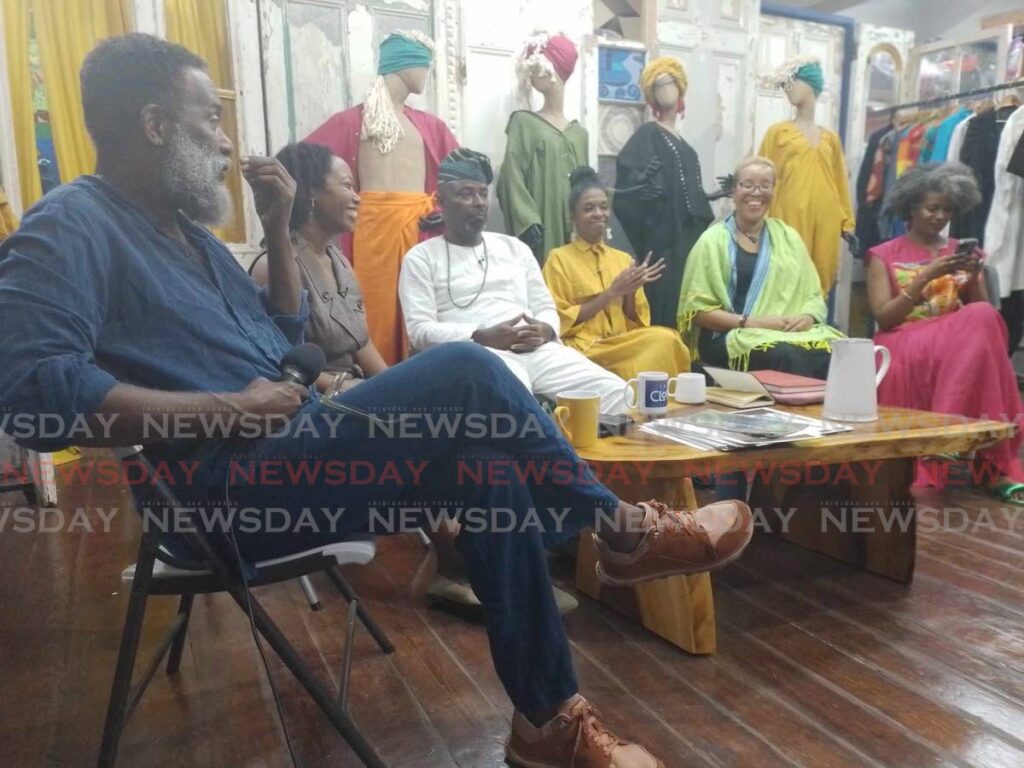Afrofuturist Ingrid LaFleur: Teach black children about tech, science

American Afrofuturist and cultural advisor Ingrid LaFleur has advocated that black children should be taught more about technology.
She was speaking during the panel discussion on Futures and Futures After Now held at Propaganda Space, Belmont, hosted by the mas band Vulgar Fraction with media personality Ardene Sirjoo as moderator.
LaFleur recalled in 2017 when she ran for mayor of Detroit, Michigan, a majority-black city, she proposed a universal basic income based on cryptocurrency and started participating in AI think-tanks and technology spaces.
"And I just realised that our people don't know anything that's coming for us. And we are always the consumer or the victim of it. We are rarely the ones producing or creating it because we are the ones who are the last to know.
"And this is why I am constantly (saying) our kids need to know how to code or they need to know about this tech or they need to know about science so they can start innovating within the space. Because we definitely have the intelligence for it. We just don't get exposed to it."
She explained Afrofuturism was coined in the 1990s in the US and she was involved from the early days.

"It's a way of discussing the black-bodied experience using speculative modalities science fiction, fantasy or magical realism."
She explained Afrofuturism pulls from Afro-indigenous mythologies, cosmologies and legends and is at the intersection of race, emerging technology and science.
She said it unapologetically centres the black body.
"I emphasise that because this is very much a healing act. We live in a world that is very anti-black. So I see Afrofuturism as a way of creating a new, healthy, beautiful relationship with blackness in totality. And we're centring our dreams, our desires and even our traumas, so we can heal them. And hopefully, create new destinies that we are crafting."
Founder and principal designer of the fashion house,The Cloth, Robert Young, in his opening remarks, said designing was about solving a problem.
"If we were to recognise our deepest connection to things that we don't feel connected to (like) the environment. The first thing is we don't even feel connected to ourselves."
He said he was interested in having discussions about Ifa traditions and Afrofuturism and connections to celebrate his birthday.
"Things that are part of our systems that we are unaware of but we don't know how to connect to because of what has happened to our lives."
Also on the panel was Olatunji Muyiwa Somorin, Araba (a Chief Priest in Yoruba/Ifa tradition) of Eposo Remo, Ogun State, Nigeria. He explained that Ifa is an ancient technology that deals with past, present and future.
"Many look at Ifa as a religious practice. It is far bigger than that. It contains information to guide our life as a human being and every other creation."

He lamented that modern-day generations are raised to be disconnected from themselves but there is a "sixth sense" within all of us that can answer all our questions like an "iPhone in you." He added, however, that many are too lazy to search within themselves.
Fellow panellist Dr Marsha Pearce, Caribbean-based scholar, educator and independent curator said when talking about points of access and connection we need to be looking at the arts and their ability to transport.
"You only have to listen to a song for that song to take you back to a particular time, a particular location, a conversation, a feeling. A painting reminds you of a moment and an experience. And so art is a time machine that allows for memory to be activated. It allows for recall."
She added that as a "time machine" it not only takes us back but can take us forward.
The fourth and final panellist was music tutor and jazz musician Chantal Esdelle. She said as a creator and someone involved in performance art when there is a commitment to a certain path, whether exercise, playing a musical instrument, reading or dancing, then one can "enact spirituality" through whatever they have decided to dedicate themself to.


Comments
"Afrofuturist Ingrid LaFleur: Teach black children about tech, science"